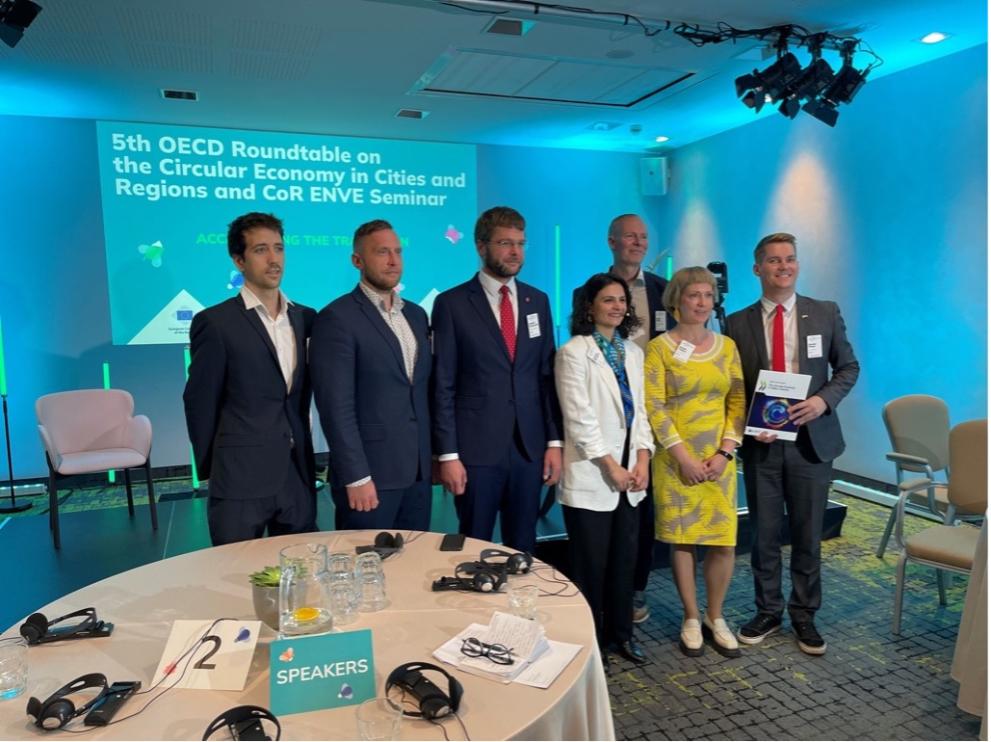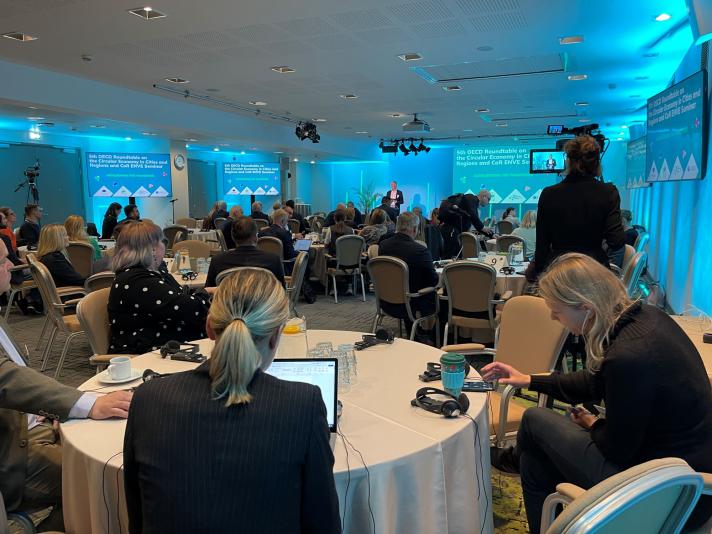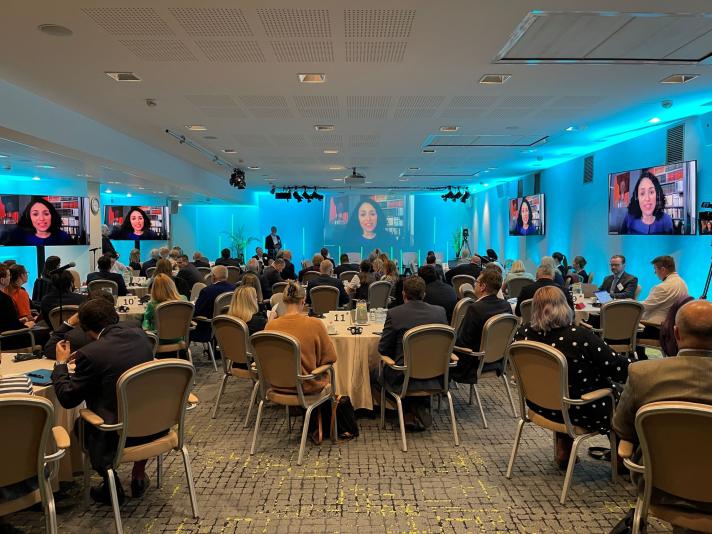
The roundtable was co-organised by the Committee of the Region's ENVE Commission and this year’s European Green Capital Tallinn introduced its Circular Economy report. The report shows the current state and challenges of the transition to a circular economy in Tallinn and gives recommendations for a successful transition towards a greener urban future.
The report was a cooperation of the OECD, the city of Tallinn, and several partners from the public and private sector and NGOs. Circular economy has never been studied so thoroughly in Tallinn before. Waste management, public procurements, construction, digital services, smart city tools, sustainability, climate neutrality, tourism and food industry all have been analysed in the report.
Deputy Mayor of Tallinn Mr. Joosep Vimm said: “The wasteful economic model of take, use and throw away cannot take us forward anymore, because it is an excessive burden to the environment. Therefore, implementing a circular economy is an important goal for the city of Tallinn. We would like to thank the OECD for its comprehensive work, the results of which will help us set new goals to implement the transition to a circular economy. We are happy to say that so much has already been done in Tallinn, but more systematic and ambitious work still awaits us.”
The OECD report recognizes Tallinn for the steps the city has already taken in making waste management more sustainable. For example, the city has achieved a higher level of separate collection, is planning to open circular economy centres, as re-use rooms and repair workshops are being added to waste stations. This clearly supports reducing consumption and keeping things in circulation. At the same time, the report indicates that the transition to a circular economy still requires filling several gaps such as establishing a clear division of roles and responsibilities related to the transition to a circular economy. The duties of the city's circular economy department are mostly related to waste management, but with more resources, it has great potential to include other areas related to the circular economy and be more efficient.
In the report, the OECD gives specific recommendations on what Tallinn should do. The recommendations to be carried out in a shorter period are to expand the circular economy department, assign specific roles and responsibilities there, develop a circular economy strategy, and organise in-house circular economy-related training, information days, inviting experts to speak.
In addition, cooperation with Estonian state institutions should be strengthened to harmonise national and local strategies, to improve the use of financial and human resources.
Details
- Publication date
- 9 June 2023
- Author
- Directorate-General for Environment
- Department
- European Commission



